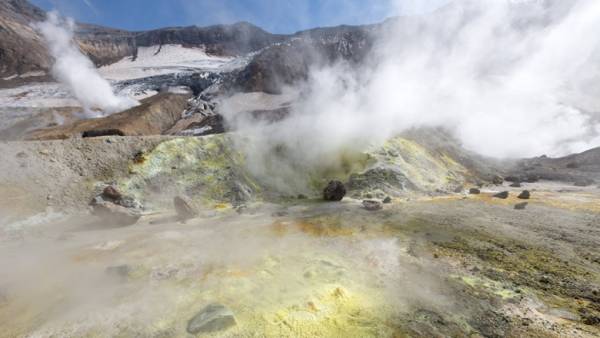If the cradle of life was Mars. Why is this possible
MOSCOW, 8 Feb — RIA Novosti, Tatiana Pichugina. According to one hypothesis, the primitive pre-cellular life arose more than four billion years ago on dry land in the midst of volcanoes and fumaroles, which provided all the necessary chemicals for its preservation and nutrition. This could happen both on Earth and on Mars. Solfatara volcano, Phlegraean fields in Italy. In such circumstances could arise in protogene.

A living cell is a very complex organism combines many elements, mechanisms and processes. How it formed is unknown. Some scientists are trying to synthesize a cage entirely, others go from the simple to the complex, figuring out how to shape its component parts separately and then over billions of years evolved.
For a long time it was believed that life originated in the oceans, but lately this view is criticized. Although the water is part of cells, the spontaneous synthesis of biomolecules it is harmful. In addition, there is no evidence that the surface of the planet more than four billion years ago, when, presumably, started the process of life, there were seas and oceans.
The chemistry of the RNA world
The role of proteini expect RNA molecules, RNA. They can store information to be reproduced to synthesize proteins and to independently perform a variety of functions that in a modern cage adopted DNA, enzymes and other biological molecules.
RNA molecules consist of alternating nucleotides, linked by oxygen bridges. Scientists have long tried to recreate the links in the polymer chain of this complex molecule, but the breakthrough came only in 2009, when British researchers Matthew Powner (Matthew Powner) and John Sutherland (John Sutherland) published the results of experiments on the synthesis of two RNA-nucleotides — cytosine and uracil. They managed to obtain in the laboratory from simple organic and phosphate after irradiation with ultraviolet light.
“They synthesized two natural nucleotide as a whole. This was a huge breakthrough,” says RIA Novosti Armen Mulkidzhanian, doctor of biological Sciences, researcher of Institute of physico-chemical biology named after A. N. Belozersky MSU named after M. V. Lomonosov, the employee of physical faculty of Osnabrück University (Germany).